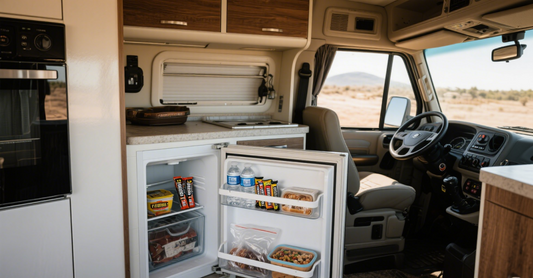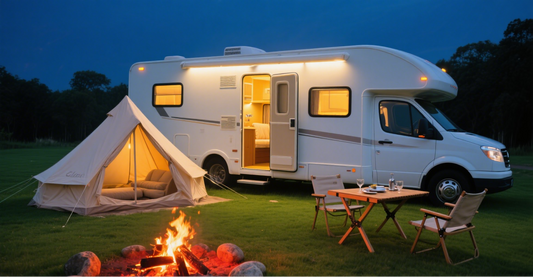Golf Cart Lithium Batteries For Yamaha: How to Choose
Yamaha golf carts are often used as a means of transportation for leisure riding on golf courses, retirement communities or private estates. The battery for your golf cart is the heart of its performance, and choosing the right power source can enhance your experience. Lithium golf cart batteries, particularly LiFePO4 options, offer longer range, less maintenance, and greater efficiency.
This guide helps you choose the right battery for your Yamaha golf cart, addressing key factors like compatibility, cost, and performance, so you can make an informed decision tailored to your needs.


What Are Yamaha Golf Cart Lithium Batteries?
Lithium golf cart batteries, particularly lithium iron phosphate (LiFePO4) batteries, are advanced power sources designed to enhance the performance of Yamaha golf carts.
Unlike traditional lead-acid batteries, lithium batteries use lightweight, high-energy-density cells to deliver consistent power for longer ranges and smoother operation.
In Yamaha models like the Drive2 or G29, these batteries support efficient golf cart running, providing 25-45 miles per charge, depending on terrain and usage. Their compact design, often weighing 60-100 lbs compared to 300+ lbs for lead-acid, improves cart maneuverability and reduces wear on components.
With faster charging times (5-6 hours) and a lifespan of 5-10 years, lithium batteries offer a reliable, low-maintenance solution. For golfers, resort managers, or private owners, they ensure dependable performance on the golf course or in communities, making them a best upgrade solution for Yamaha golf carts.
Comparing Lithium to Other Battery Types
Understanding battery types helps you decide if lithium is the right choice for your golf cart. The table below summarizes key differences, followed by a detailed comparison.
| Battery Type | Lifespan | Energy | Maintenance | Charging Time | Cost |
|---|---|---|---|---|---|
| Flooded Lead-Acid | 5-10 years | 1280Wh | Regular (water cleaning) | 8-10 hours | Low upfront, cost-effective long term |
| AGM | 3-5 years | 2500Wh | Minimal | 7-9 hours | Moderate |
| Lithium | 4-9 years | 3840Wh | None | 5-6 hours | Higher upfront |
| LiFePO4 | 5-10 years | 3840Wh | None | 5-6 hours | Higher upfront |
Flooded Lead-Acid Batteries
These deep cycle batteries, available in 6-volt, 8-volt golf cart batteries, or 12-volt configurations, are affordable and widely available.
However, they require regular maintenance, are prone to corrosion, and have a high self-discharge rate (up to 10% monthly).
Their heavy weight reduces efficiency, and they lose up to 50% capacity at -4°F (-20°C), per industry standards for sealed lead-acid (SLA) batteries.
AGM (Absorbent Glass Mat) Batteries
A maintenance-free lead-acid variant, AGM batteries resist vibration, making them suitable for rough terrains.
They have a lower self-discharge rate but remain heavier and less efficient than lithium, with a 4-6 year lifespan.
Lithium (LiFePO4) Batteries
Lithium iron phosphate batteries excel in energy storage, offering 4000–6000 cycles. They retain 80–90% capacity at -4°F (-20°C), per LiFePO4 standards, and provide 40–60% more usable energy than lead-acid.
For Yamaha golf carts, lithium lightweight design and extended range make it ideal for frequent or demanding use, despite the higher upfront cost.
Why Choose Lithium Batteries for Yamaha Golf Carts?
Lithium batteries offer significant advantages over traditional lead-acid batteries for Yamaha golf carts. Their high energy density ensures consistent power, even on challenging terrains like hilly courses.
Charge and Discharge Cycle Life
With a longer lifespan typically 5-10 years compared to 3-5 years for lead-acid, they reduce replacement frequency.
Battery Weight
Lithium options are also lightweight, often 60-100 LBs versus 300-400 LBs for a lead-acid set, addressing questions like how much does a golf cart battery weigh. This lighter weight improves energy efficiency and handling, crucial for smooth golf cart running.
Efficient Charging and Environmentally Friendly
Lithium batteries support faster charging, reaching a full charge in 5-6 hours, minimizing downtime between rounds. They are maintenance-free, eliminating tasks like checking water levels or cleaning terminals, unlike flooded lead-acid batteries.
Their eco-friendly design, free of toxic lead or acid, appeals to environmentally conscious users. Making lithium batteries the best choice for Yamaha golf cart owners who seek performance and longevity.
Key Factors for Choosing a Yamaha Golf Cart Lithium Battery
Selecting the right lithium battery for your Yamaha golf cart requires considering not only the type used, but also its compatibility and performance.
Compatibility of Different Golf Cart Models
Most Yamaha models, like the Drive2 or G29, use 48-volt systems, while older models like the G14 may use 36-volt setups. Check your cart’s voltage via the manufacturer’s plate or battery labels.
For example, the Drive2 requires a 48V battery fitting a 559x324x262mm tray, while the G14 may need custom wiring for 36V.
Buy Different Battery Models
Battery capacity, measured in amp hours (Ah), determines runtime.
A 50Ah battery (2.5-3kWh) suits casual 9-hole rounds, providing 3-4 hours of use.
For 18-36 holes or hilly terrains, choose 100Ah+ batteries (5kWh+), offering 25-40 miles of extended range, depending on terrain and load.
It is especially important to choose models with a battery management system (BMS), which can prevent overcharging, overheating and short circuits during your use. To enhance battery safety, when buying golf cart lithium batteries, please consider models equipped with features such as Bluetooth monitoring and low temperature power off.
Battery Size
Final, ensure the battery’s size fits your Yamaha’s tray (e.g., 13.39×18.11×9.84 inches for some 48V models) and that terminals match existing cables.
Lithium batteries are 60-100 lbs, improving maneuverability compared to 300+ pounds for lead-acid sets.
please use a lithium-specific charger, as some lead-acid chargers may work if voltage and current match, but mismatched specs can damage the battery BMS.
In addition, in order to help you buy the best lithium battery, we also provide you with a more detailed guide, continue reading: 2025 Guide to Choosing the Best Lithium Golf Cart Battery
How Much Does It Cost To Buy Yamaha Golf Cart Lithium Battery
Buying lithium golf cart batteries have a higher upfront cost $1500-$2500 for a 48V 100Ah LiFePO4 battery versus $600-$1000 for lead-acid, but offer long-term savings.
With 4000-6000 deep cycles, lithium lasts 5-10 years, compared to 3-5 years for lead-acid, saving $200-$300 annually on replacements.
Also, maintenance costs, like distilled water or terminal cleaning ($100-$200/year for lead-acid), are eliminated, and faster charging reduces energy expenses.
For frequent users, lithium’s performance better acceleration, longer range, and hill-climbing ability adds value.
A Yamaha Drive2 with a 100Ah lithium battery achieves 25-40 miles per charge, versus 18-22 miles for lead-acid, based on terrain and load. These factors make lithium a cost-effective choice for long-term use on the golf course.
Common Usage Terrain Of Yamaha Golf Cart Lithium Batteries
Lithium batteries perform well in varied scenarios, addressing specific user needs:
- Hilly Courses: High discharge rates (e.g., 200A continuous) handle steep slopes, ensuring smooth performance.
- Frequent Short Trips: Low self-discharge rates (below 3% monthly) retain power during idle periods, ideal for daily use in communities.
- Resort or Fleet Use: Fast charging (5-6 hours) and 25-40 mile range support multiple daily rounds, minimizing downtime.
These scenarios highlight lithium’s versatility for Yamaha golf carts, enhancing reliability across diverse applications.


How Installing Lithium Batteries in Yamaha Golf Carts
Installing lithium batteries requires planning ahead for compatibility with the golf cart and safety.
Confirm your Yamaha model’s specifications (e.g., Drive, G29, YDRE) and voltage (36V or 48V).
Modern 48V systems, like the Drive2, often use one 48V lithium battery to replace six 8-volt or four 12-volt lead-acid batteries, simplifying wiring. Older 36V models, like the G14, may need tray adapters or wiring adjustments.
Verify the battery’s dimensions (e.g., 559x324x262mm for Drive2) and terminal types match your cart’s cables. Many lithium batteries, like Temgo battery, are designed for easy installation, taking under 30 minutes, but some models require minor adjustments like tray spacers.
Secure the battery with brackets and check connections to prevent short circuits. Professional installation is recommended for complex setups to preserve warranties.
Lithium batteries maintain 80–90% capacity at -4°F (-20°C), outperforming lead-acid, per LiFePO4 standards. In extreme cold, pre-warm the battery to optimize performance.
In winter, please store in a wind-proof place and use a dedicated charger for lithium batteries to protect the battery management system (BMS).
You can also read: How To Install a 36V or 48V Lithium Battery In Your Golf Cart
Recommended Temgo Lithium Batteries: for Yamaha Golf Carts
Temgo Battery offers high-performance LiFePO4 batteries tailored for Yamaha golf carts, ensuring reliability and ease of use. Their 36V and 48V models meet UL, CE, and FCC standards, delivering robust power and smart features.
Temgo 36V Lithium Battery
- Delivers 200A continuous discharge and 600A peak surge (3 seconds) with 7.68kW peak power, ideal for rugged terrains.
- At 61.73 LBs, it reduces cart weight for better efficiency.
- A 42.6V 20A fast charger achieves a full charge in 5-6 hours.
- The 200A BMS with Bluetooth connectivity via the Temgo app monitors voltage and prevents overcharge or overheating.
- Low-temperature protection stops discharging below -4°F (-20°C) and charging below 32°F (0°C).
- The IP65-rated ABS casing is dustproof and moisture-resistant, with 4000-6000 cycles for long-term reliability.


Temgo 48V Lithium Battery
- Offers 5.12kWh (100Ah), supporting 35-45 miles per charge for 18-hole rounds.
- Weighing 99.2 LBs (13.39×18.11×9.84 inches), it’s easy to install.
- It provides 200A continuous discharge and 300A peak discharge (30 seconds) for steep slopes.
- A 56.8V 18A charger ensures a 5-6 hour charge.
- The IP67-rated SPCC metal casing is waterproof and fireproof, suitable for harsh conditions.
- A 2.8-inch LCD touchscreen displays voltage, current, and state of charge (SOC), with the Bluetooth app providing historical data and alerts.
- With a 3% monthly self-discharge rate and 4000-6000 cycles, it’s built to last.


Confirm tray size and terminal type with your Yamaha manual, as some models may need minor adjustments like spacers or connectors.
How Maintaining Your Yamaha Golf Cart Lithium Battery
Unlike flooded lead-acid batteries, lithium batteries are maintenance-free, with no need to check water levels or clean terminals. However, to further optimize lithium battery performance and life, follow these recommendations:
- Charge frequently, keeping the battery above 20% capacity to avoid deep discharges.
- Use a lithium-specific charger, like Temgo's included models, to protect the BMS and ensure efficient charging.
- Store in a dry, moderate-temperature environment (avoid extreme heat or cold).
- Monitor via Bluetooth apps or LCD screens for voltage, SOC, and alerts. If the app shows BMS errors (e.g., overcurrent), disconnect the battery for 10 minutes to reset and contact Temgo support if issues persist.
Read on for more maintenance tips: How to Maintain Your Lithium Golf Cart Battery
Signs Your Yamaha Golf Cart Battery Needs to Be Replaced
Recognizing when to replace your battery prevents performance issues. Look for:
- Reduced Range: Less than 25-35 miles per charge indicates capacity loss, depending on terrain and load.
- Slow Charging: Charging times exceeding 6-8 hours suggest degradation.
- Sluggish Performance: Slow acceleration or difficulty climbing hills signals battery wear.
- BMS Alerts: Error codes like low SOC or thermal fault on apps or screens indicate issues; check logs and contact support.
Lithium batteries rarely corrode, but internal battery performance will degrade over time, so consult a professional if you see these signs.
Conclusion: Choose Temgo Battery for Your Yamaha Golf Cart
Choosing the right lithium battery for your Yamaha golf cart enhances performance, eliminates maintenance, and supports eco-friendly operation.
By evaluating voltage, capacity, and BMS features, you can select a power source tailored to your needs, whether for casual rounds or resort use.
Temgo Battery delivers high-performance LiFePO4 batteries, with 36V and 48V options featuring Bluetooth monitoring, fast charging, and durable designs. Certified to UL, CE, and FCC standards, Temgo's commitment to cutting-edge technology ensures reliability for models like the Drive2 and G29.
Ready to upgrade your Yamaha golf cart? Explore Temgo’s lithium golf cart batteries for longer range, faster charging, and hassle-free performance. find the perfect battery for your golf cart and elevate your ride today.


